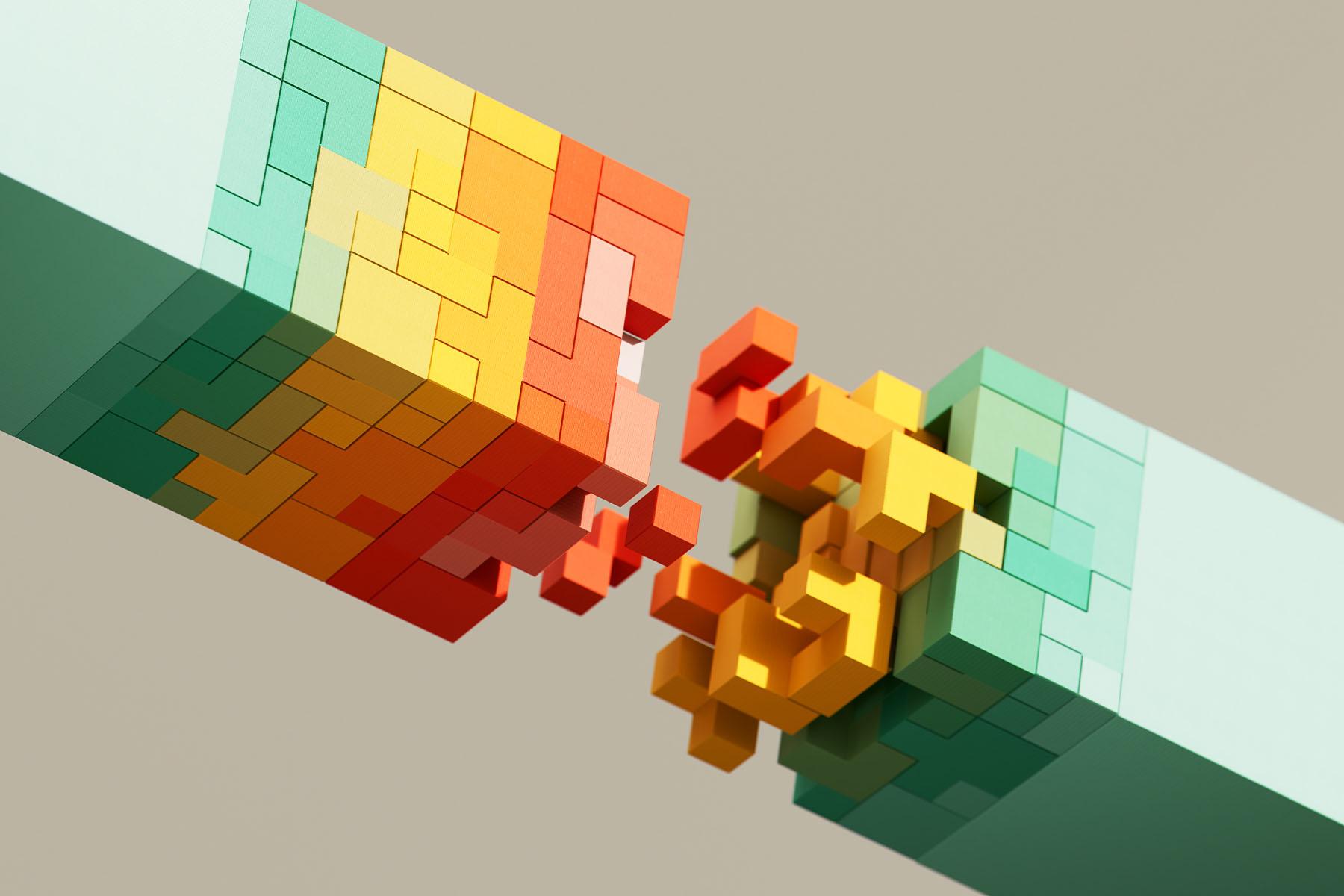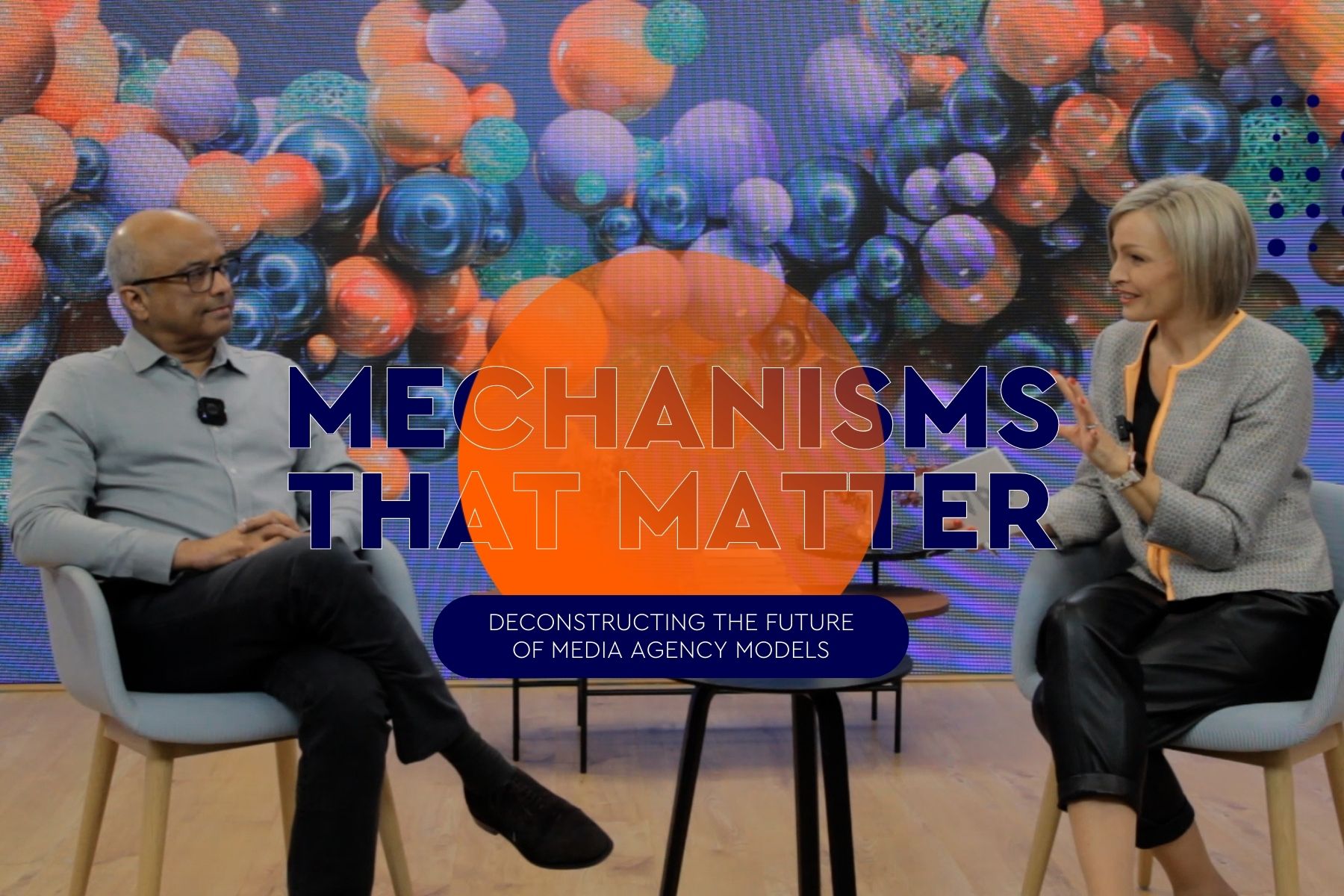Inclusion champions: Amy Walker and Christine Benton
The transformative power of a neurodiverse workforce
Show this article in Chinese, French, Portuguese (BR), Spanish
To coincide with the meeting of WPP’s new global Inclusion Council in September, and National Inclusion Week across the UK, WPP is bringing together 12 changemakers from across the network. These individuals are driving key conversations around inclusion and diversity and the industry-wide agenda forward. Across six conversations they discuss action, initiatives, and the power of advertising and marketing to create change in wider society.
Amy Walker, Diversity & Inclusion Coordinator at GroupM UK, and Christine Benton, Executive Vice President, and Executive Sponsor of the Capable Employee Resource Group at BCW, North America, discuss the transformative power of a neurodiverse workforce and the importance of creating safe spaces for people to bring their whole selves to work.
Amy Walker, Diversity & Inclusion Coordinator, GroupM UK (She / Her / Hers): I've definitely experienced lots of different challenges and barriers, right from my childhood up to trying to find a job. I think a lot of neurodivergent people struggle to fit into the mold at school. So straight away, you're dealing with bullying, health problems and anxiety. And also, sometimes, teachers misinterpreting your behaviour as being naughty or, maybe, wilfully trying to be different.
In fact, it was only with the help of a charity called Ambitious about Autism – which gave me lots of training, helped me to work out what adjustments I might need, and helped me make the most of my ability – that I managed to get enrolled in m/SIX’s internship programme designed to actively champion neurodiversity. I needed that help in order to get into the job market. I couldn't have done it all on my own, even though I was trying my hardest to do so.
As part of our internship we hosted a series of conversations with the charity Ambition for Autism, the CEO of m/SIX at the time, and our Head of People. It was amazing how many people came forward afterwards with diagnoses of dyslexia that they hadn't wanted to talk about and didn't have any adjustments for. People with mental health conditions as well. It really aided that psychological safety that you need in your culture to bring your whole self to work. Those interviews are up on the GroupM Worldwide YouTube channel. There's also another interview project there that we did for Autism Awareness Day, interviewing people outside of GroupM in different companies at different points in their career about some things they struggle with, how they've got through them and what colleagues should do if they have an autistic workmate.
Those two video series have been super impactful, they have been shared by a lot of charities online and have been used in training by Ambitious about Autism for other companies. There's a feeling of awkwardness around disability and people not quite knowing what to say. Being able to watch a video asking all of those questions that you were a bit worried about makes a big difference.
Christine Benton, Executive Vice President and Executive Sponsor of Capable Employee Resource Group, BCW North America (She / Her / Hers): That’s incredible. I think it’s so important to have those conversations. Many people aren’t aware that they have an illness or that it's undiagnosed. I wasn't aware that I was depressed; I just felt that I was different than other people. Rather than understanding my condition, I tried hard to fit in and make myself useful in every way possible. That's not necessarily a great career strategy. I really encourage people to be as objective as possible about your strengths and weaknesses and develop in the area where you're naturally gifted.
AW: Agreed. I think more people have been bringing their full self to work as a result of COVID-19, just because their full self is on screen and colliding with their work life at all times. It's been amazing to have that vulnerability. I've gotten to know a lot of my colleagues who I felt I was pretty good friends with anyway, but I've got to know them on a much more personal level. That's just aided our communication, and aided our feeling of connection at work. It's so bizarre that in some ways, I’ve felt more connected during this period – without being able to see people – because we have all been empathising with each other the whole time and talking about the difficulty that we're all going through.
Once you're aware that you have something, you come out of the denial phase of it and can embrace it, you become someone who becomes much more grounded, reality-based, objective and invested in doing what it takes for you to be at your best.
CB: I agree and I’m hoping the fact that we've gone into lockdown and have become more intimate, and brought our whole selves to work, will make people more able to embrace their humanity a bit.
I’ve actually worked from home for a decade now, but how have you found it?
AW: Well, before we got to the ‘work from home all the time’ life, I relied on an app called Otter which is a real-time transcription tool. And particularly in meetings I find that there isn't much processing time. So, being able to read back some of what was said a couple minutes ago, and keep where we're at, as well as if I miss something because I hear things wrong, especially if I can't see someone speaking, is really helpful. Now that tool is on Microsoft Teams, so during our meetings I can have the transcription going, which is so helpful when you've got nine people on quite a small screen and the audio isn't that good.
Also, being able to record those meetings and read through the transcription in stream means that sometimes I don't need to attend a meeting, but I can catch up on it and find out what I've missed. I think that that's a really huge thing for inclusion if you can't always be there.
I've been really lucky at GroupM; that we've already got quite a neurodivergent talent team. So we've got people with dyslexia and ADHD, so I already had that level of education and understanding when I got there. But what I've really noticed is that there's a ying and yang thing with cognitive styles and abilities. I work really, really well with someone who's dyslexic and can really see the big picture. I'm the detail-oriented person – I can go in and fix some of those little issues or think about some of the risks – while they're doing the blue sky thinking. It definitely helps with team cohesion and just getting into that flow state together – having people coming at it from different perspectives.
Obviously, you're going to get some variances and differences as well, and you're going to argue them out and come to a conclusion that covers all your bases. I don't know if that necessarily happens when you've got everyone singing from the same hymn book.
I know that having just a couple autistic people in the m/SIX office was transformational to its culture and for creating that psychological safety that was developed there. That safety means that you can bring your full self to work.
CB: Absolutely. Anyone with a disability – in my experience personally as mental illness – has had to fight to be as well as possible. It took a lot for me to crawl and scratch my way back from the depths of depression. That's a process. And it takes a lot of strength.
The skills and the character that I needed in coming back from depression are an inner strength that I've never lost. That is something that goes for any person with a disability. Once you're aware that you have something, you come out of the denial phase of it and can embrace it, you become someone who becomes much more grounded, reality-based, objective and invested in doing what it takes for you to be at your best. I think that [makes you] a stronger person. You become more self-reflective, self-aware, more responsible and accountable for who you are and how you show up. So that's my very strong point of view on this, but I think it strengthens the workforce in a way that we're not even aware.
AW: I was thinking of WPP as a creative transformation company and what that means to me with a diversity and inclusion hat on. For me, it means looking to the future and ensuring that we're not making the mistakes and missteps that we've made in the past. This includes making our workforce as diverse and representative as possible, as it hasn't been in the past.
I know that having just a couple autistic people in the m/SIX office was transformational to its culture and for creating that psychological safety that was developed there. That safety means that you can bring your full self to work, and welcome more diverse people through the door. We need to be adjusting for them, we need to be making sure that they can thrive. We need to make sure that they have sponsorship and mentorship. Then, we get the benefit of that diversity of those great ideas and that creative friction that I talked about before. That's what I want creative transformation to mean for WPP, and I think we're on that path right now.
Read more from our Inclusion Champions in conversation series
published on
30 September 2020
Category
More in Communications

Healthcare communications – diverse, dynamic & different
Communicating about health and healthcare in APAC requires a nuanced and balanced approach

Mechanisms that Matter – How India is fuelling growth for global brands
CVL Srinivas tells Anna Hickey how WPP Open is fuelling a testbed for new working models, innovation, and automation.

Media in India: the future is now
Brands pursuing the Indian market must focus on personalised experiences and data-driven strategies

